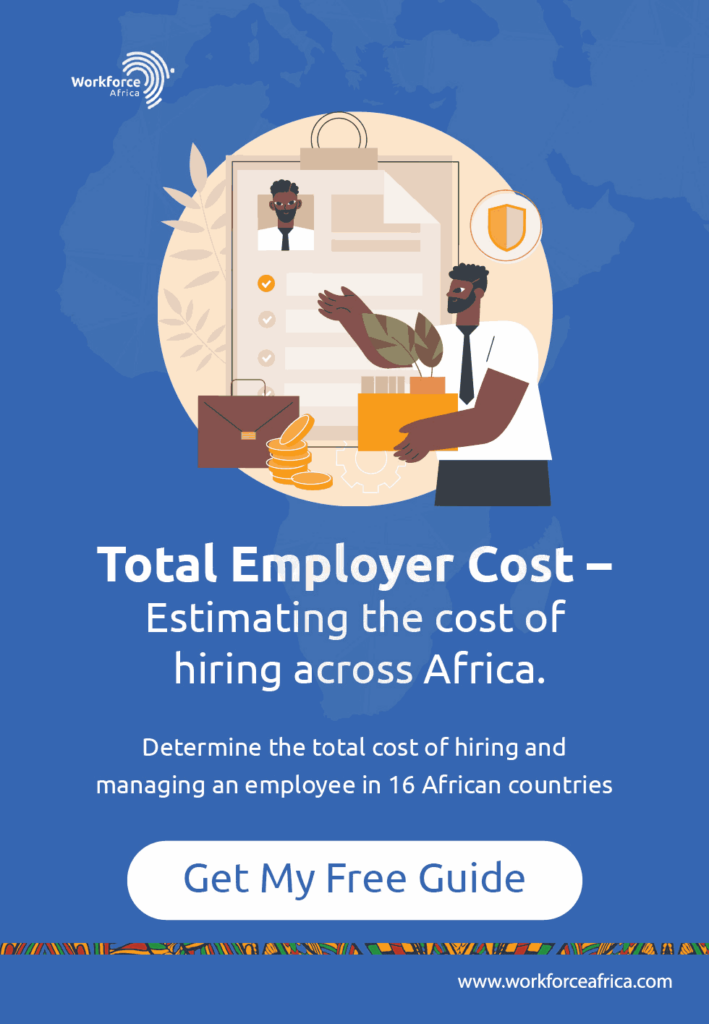

Africa boasts a vast pool of untapped talent. This article outlines practical strategies for businesses and governments to harness this potential.
Africa can cultivate a highly skilled workforce by investing in talent development and inclusive workplaces to drive economic growth.
Africa is a continent brimming with potential, home to a young, dynamic population eager to contribute to its development.
However, the time to harness this talent pool is now. This article delves into key strategies to maximise Africa's skilled workforce.
By focusing on education, skills development, entrepreneurship, and inclusive workplaces, we can unlock the full potential of Africa's human capital, driving economic growth and innovation.
Africa is experiencing a demographic dividend, with a flourishing youth population eager to contribute to the continent's development.
This presents an opportunity to cultivate a skilled workforce capable of driving economic growth. However, to fully harness this potential, it is imperative to leverage local expertise.
African countries can build a competitive edge in the global marketplace by investing in developing homegrown talent.
It involves creating an environment that promotes innovation, entrepreneurship, and creativity, leveraging the power of technology.
Governments and educational institutions should work together to design curricula that meet industry demands and prepare graduates with the skills needed to thrive in a fast-paced world.
Furthermore, it is essential to create opportunities for young Africans to gain practical experience through internships, apprenticeships, and mentorship programs.
By providing hands-on training, we can bridge the gap between academia and the workforce, ensuring that graduates are job-ready and capable of making immediate contributions.
Promoting lifelong learning and upskilling will empower African professionals to keep pace with technological evolution and industry trends.
By investing in talent development and creating an enabling environment, Africa can position itself as a global leader in various sectors, from technology and finance to agriculture and healthcare.
Ultimately, leveraging local expertise is critical to unlocking Africa's full potential.
The continent can build a strong foundation for sustainable economic growth and development by investing in its people.
Recommended Post: Hiring Remote Talent In Nigeria – A Quick Overview
Investing in skill development is paramount to unlock Africa's full economic potential.
Countries can boost productivity, innovation, and competitiveness by equipping the workforce with the necessary competencies.
Talent development programmes should be tailored to meet the evolving demands of the job market.
This requires close collaboration between governments, businesses, and educational institutions to identify skill gaps and develop relevant training initiatives.
Technical and vocational education and training should be prioritised to produce skilled workers in agriculture, manufacturing, and information technology sectors.
Soft skills, including communication, problem-solving, and leadership, are equally crucial for career success.
Incorporating these skills into training programmes will enhance employability and career progression, ensuring holistic skill development.
Furthermore, lifelong learning should be encouraged to ensure that the workforce stays updated with technological advancements and industry trends.
Public-private partnerships can be crucial in financing and implementing skill development programmes.
By combining resources and expertise, stakeholders can develop initiatives that are both sustainable and impactful.
Moreover, leveraging technology can make training more accessible and affordable, especially for those in remote areas.
By investing in Talent development, Africa can build a highly skilled workforce proficient of driving economic growth and creating a brighter future for its citizens.
Suggested Post: Hiring Remote Employees? 6 Tips on Hiring the Right Talent
Africa's diverse cultural landscape is rich in traditions, values, and perspectives.
While this diversity is a significant asset, it can also pose challenges in team dynamics.
Organisations must effectively navigate cultural differences to foster collaboration and productivity to maximise the potential of Africa's talent pool.
Understanding and respecting cultural nuances is crucial. Communication styles, decision-making processes, and attitudes towards time and work vary across cultures.
Implementing intercultural training programmes can help employees develop the skills to communicate and collaborate effectively and efficiently with colleagues from different backgrounds.
Creating a culture of inclusivity is essential. Organisations should celebrate diversity and create a workplace where everyone feels valued and respected.
This involves fostering open dialogue, encouraging empathy, and providing opportunities for cross-cultural exchange.
Moreover, it's essential to establish clear expectations and guidelines for teamwork.
Defining roles and responsibilities, setting clear objectives, and using project management tools can help streamline processes and reduce misunderstandings, ensuring effective team management.
By embracing cultural diversity and creating an inclusive workplace, organisations can harness the full potential of Africa's talent pool and build high-performing teams that drive innovation and success.
Effective leadership development is paramount in talent development.
Inclusive leadership fosters a collaborative environment where diverse perspectives are valued and leveraged.
By embracing diversity and creating an equitable workplace, organisations can harness the power of global collaboration.
Leaders must cultivate a culture of empathy, respect, and trust. This involves
Additionally, leaders should challenge biases and stereotypes, promoting a fair and inclusive workplace.
Mentorship and sponsorship programs can be important in developing African talent.
By pairing experienced leaders with high-potential employees, organisations can accelerate career growth and create a pipeline of future leaders
Furthermore, investing in cross-cultural training can enhance communication and collaboration among global teams.
Leaders should encourage diverse teams to work together on complex challenges to drive innovation and problem-solving.
Organisations can create fertile ground for new ideas and solutions by stimulating a culture of experimentation and risk-taking.
Ultimately, inclusive leadership is essential for building a thriving and sustainable workforce that can compete globally.
By prioritising diversity, equity, and inclusion, organisations can unlock the immense potential of Africa's talent pool and create a more prosperous future for all.
Africa's potential is immense, and its people are its greatest asset. By implementing the strategies outlined in this article, we can unlock the full potential of Africa's talent pool.
This will drive economic growth and create a more equitable and prosperous future for all Africans.
The time to act is now, and the future is bright. Schedule a free consultation today to learn more.